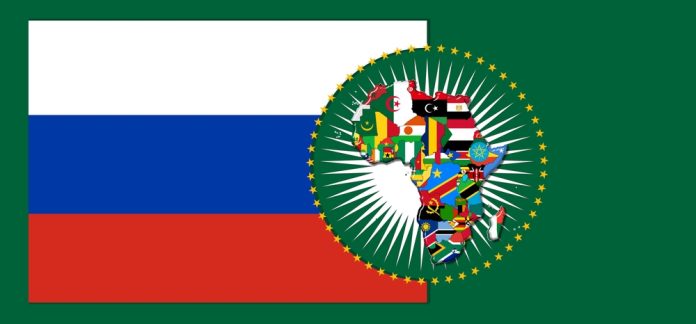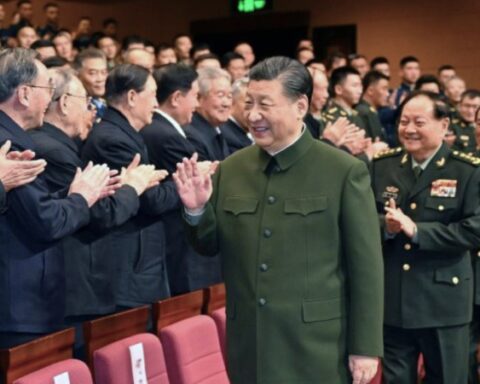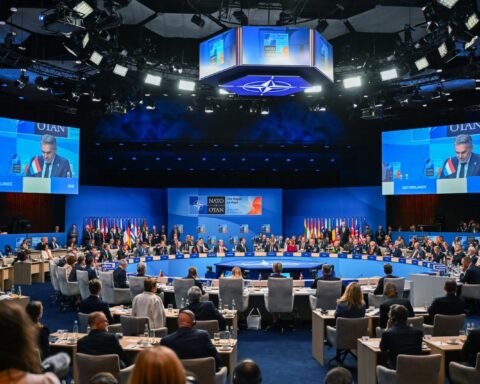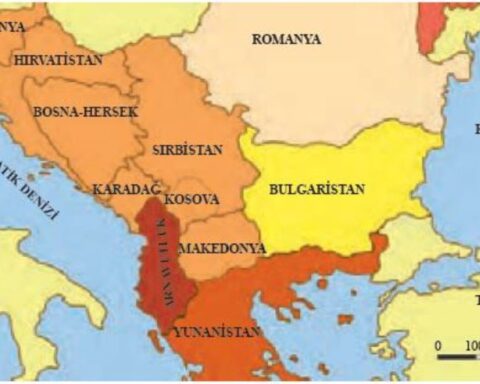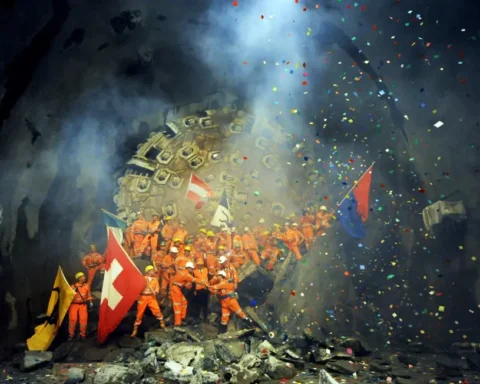Africa is no longer a peripheral arena—it’s becoming a central platform for Moscow’s global strategy.
As President Donald Trump seeks a breakthrough with Putin on Ukraine, the Kremlin is stalling—and making gains elsewhere. While Washington remains absorbed in Eastern Europe, Moscow is expanding its reach in Africa, pushing steadily toward the Atlantic coast. Working under the radar, Russia is building military outposts, securing defense agreements, and shifting the regional balance from the Red Sea to West Africa.
If the Trump administration fails to respond, the Kremlin will lock in another strategic foothold on NATO’s southern flank. And it won’t be alone: Russia is deepening coordination with China and Iran, forming a hostile axis intent on challenging Western dominance across multiple theaters—land, sea, air, and the airwaves.
The U.S. withdrawal from Niger—following France’s expulsion from Senegal, Mali, and Burkina Faso—mark the collapse of Western footholds in the Sahel. As the West retreats, Russia is rapidly filling the vacuum, embedding itself in security structures and expanding its influence beyond its borders. And it’s not just political influence—Russia is Africa’s top arms supplier, accounting for 40 percent of the continent’s weapon imports.
This isn’t mere opportunism—it’s Putin’s asymmetric warfare at work. Arming juntas, backing coups, and exploiting chaos, Moscow is seizing the power vacuums left by the West. At a summit in Sochi last November, Puti vowed: “Our country will continue to provide total support to our African friends.”
Moscow’s growing influence in Burkina Faso, Mali, and Niger—the newly formed Alliance of Sahel States (AES)—signals a clear trajectory. Between 2020 and 2023, military juntas in these countries seized power through Russian-backed coups, ending military and diplomatic ties with regional allies, France, and the United States. Now, they are deepening security cooperation under Moscow’s guidance. A joint force of 5,000 troops from Niger, Burkina Faso, and Mali will to deploy in the central Sahel, reinforcing Russian influence while sidelining Western-backed security structures.
But Russia isn’t just backing these regimes—it’s rewiring Africa’s security architecture through its shadowy mercenary corporation Wagner PMC. More than a paramilitary group, Wagner is a strategic weapon for embedding in security forces and reshaping the region’s balance of power. By supplying military aid and diplomatic cover, Moscow is making itself the backbone of their survival, ensuring long-term control over the region’s future.
Moscow is now extending this strategy beyond the Sahel to the Atlantic coast. In Mauritania, Foreign Minister Sergey Lavrov’s 2023 visit was part of a broader Russian diplomatic push. While the Mauritanian government reaffirmed its commitment to international law, it also expressed that it “understands” Russia’s security concerns—proof that Moscow’s narrative is gaining traction.
In Equatorial Guinea, Russia has taken a more direct approach. Reports from November 2024 indicated that Moscow deployed up to 200 troops to protect President Teodoro Obiang Nguema Mbasogo’s regime. This follows Russia’s familiar pattern: offer regime protection in exchange for long-term influence. Equatorial Guinea, with its oil wealth and strategic location along the Gulf of Guinea, provides Russia with a foothold in an area historically dominated by Western powers.
This shift benefits Russia in three critical ways. First, it forces neighboring states like Chad, Benin, Ghana, and Côte d’Ivoire—once reliable Western partners—to engage with Moscow, whether they want to or not. Given that Mali, Burkina Faso, and Niger are forming a buffer zone aligned with Russia, and Russian-backed forces are operating in coastal states, regional governments are faced with the decision of realigning their security partnerships or risking maneuvering in a landscape dominated by Moscow.
Second, the AES bypasses both the African Union and ECOWAS, weakening the very institutions that once coordinated regional security. By eroding these frameworks, Moscow ensures that any response to instability is shaped on its terms. It’s no coincidence that Togo, seeing the shifting power dynamics, is now seeking to join the AES.
Third, this strategy disrupts U.S. and NATO-backed security operations. With Western forces cut off from key hubs in the Sahel, counterterrorism efforts are pushed further south into fragile coastal states. The disruption fractures intelligence-sharing and forces Western forces into an increasingly reactive posture. This is the kind of battlefield Russia thrives in—where Western interventions are sluggish, while Moscow presents itself as the new security guarantor.
But Moscow’s ambitions in Africa extend far beyond the continent—it sees it as a critical node in a new global architecture of influence. By 2026, Moscow plans to open embassies in Gambia, Liberia, Comoros, Niger, Sierra Leone, Togo, and South Sudan, cementing its influence in regions where Western influence is fading.
This shift reinforces Russia’s strategic bloc—Iran secured Nigerien uranium after a Kremlin-backed coup, while China expands its dominance as Moscow erodes Western influence. Together, Moscow, Tehran, and Beijing are forging an axis that directly challenges U.S. interests across the globe.
Now, Russia is eyeing the Atlantic. While no naval base on Africa’s west coast has been announced, with deepening ties in Guinea, Mauritania, and Equatorial Guinea suggest it’s only a matter of time. What starts as a logistics hub today could become a military outpost tomorrow, giving Moscow a strategic foothold to challenge NATO dominance and potentially disrupt Western supply lines.
Before Washington responds, it must recognize the scope of Russia’s ambitions. Africa is no longer a peripheral arena—it’s becoming a central platform for Moscow’s global strategy. Keep overlooking it, and Russia, Iran, and China will shape the terrain unchallenged. With Moscow securing key corridors and forging new security alignments, Western supply chains could fracture, deterrence could unravel, and Europe could find itself exposed. By the time the West reacts, the balance of power may have already shifted.
*About the Author: Zineb Riboua
Zineb Riboua is the Research Fellow and Program Manager at the Center for Peace and Security in the Middle East at the Hudson Institute. She specializes in Chinese and Russian involvement in the Middle East, the Sahel, and North Africa, great power competition in the region, and Israeli-Arab relations. Prior to joining Hudson Institute, Ms. Riboua was a research assistant at the Center for Jewish Civilization at Georgetown University. Ms. Riboua’s pieces and commentary have been published in The Wall Street Journal, Foreign Policy, The National Interest, The Jerusalem Post, Tablet, and other outlets. Follow her on X: @zriboua.
Source: https://nationalinterest.org/feature/the-rise-of-russias-african-empire

